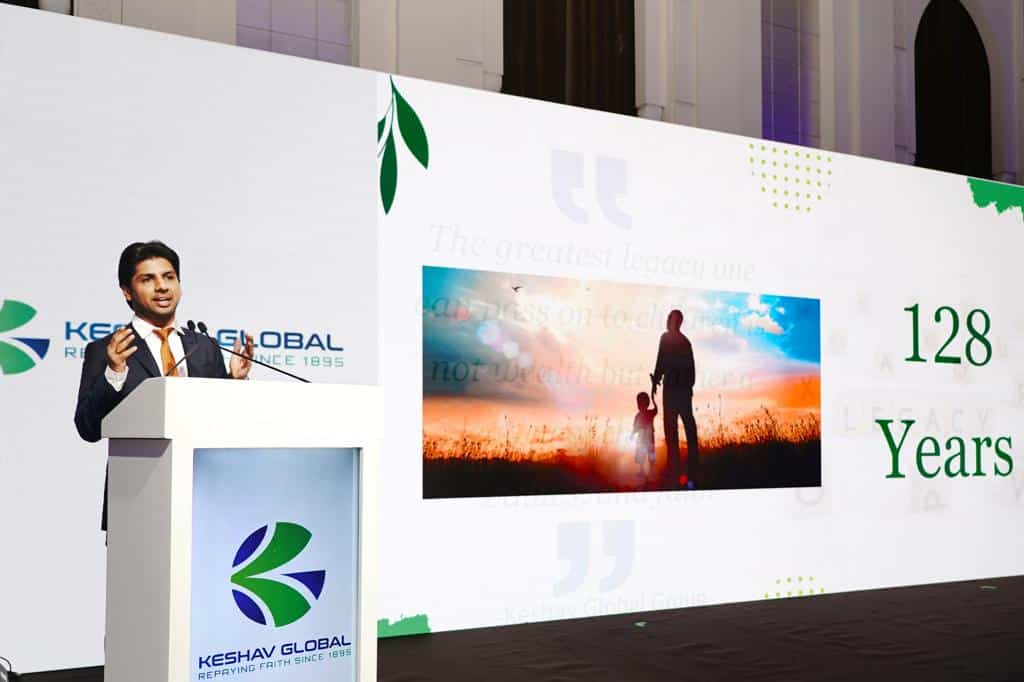Keshav Global has unveiled a new 10-year project which will see one of the Middle East’s largest timber traders focus on addressing the global shortage of wood products.
The FAO and the World Bank anticipate that timber demand will quadruple over the next thirty years, fuelled by a surge in the demand for housing, urbanisation and the push to decarbonise.
The “visionary roadmap” was launched by Vyom Sunil Garg, CEO of the sixth-generation business, to celebrate the company’s foundation. Established in 1895 in Hapur, India, the company has extensive interests in Africa and Asia.

It seeks to expand its three business verticals: Agro Products and Processing, Agro Inputs and Sustainable Timber and will connect the African and South American continents with Indian manufacturing.
“Our meticulously crafted 10-year plan reaffirms our unwavering commitment to sustainability, innovation, and inclusivity. We are resolute in our mission to leave a lasting, positive imprint on the world while staying true to the values that have propelled us to this defining moment.” Mr Vyom Garg told a gala dinner at the Shangri-La Hotel in Dubai.
The vision includes a commitment to deliver on a 200,000-hectare afforestation project in Liberia on the West African coast, and it has aspirations to replant 100 million trees across South America and Africa as part of a global afforestation project.
Announced last month, Keshav Global has committed to an extensive planting cycle in the Gbarpolu and Cape Mount Counties.
The project aim, according to Mr Vyom Garg, “is to produce a range of end products”, with the company looking to produce MDF, Particle Board, KD/AD Sawm Lumber, Decking, Flooring, Finger jointing, pallets, packaging timbers, engineered timbers, papers, furniture and more.
Keshav Global is already working on projects in the Congo, South America and India, with the company undertaking a feasibility analysis which could see up to US $200 million committed and production volumes of up to 2 million additional cubic metres per annum.
This includes a joint venture with Indian conglomerate Rajkripal Lumber – one of the world’s largest teak wood suppliers with a global supply chain stretching across Latin America, Southeast Asia and Africa.
Under the plan, timber will be exported from Liberia and manufactured into Cross-laminated timber panels and stairs.
The ambitious project will see the consortium supply global markets with up to 500,000 cubic metres of cross-laminated timber in the first phase, followed by 350,000 cubic metres in the project’s second phase.
It aims to provide “fully-certified timbers” and is committed to investing in bioenergy, carbon credits and organic farming.
“Our plans include the production of biofuels from sugarcane projects in Liberia and India,” Mr Vyom Garg.
“Additionally, our bioenergy production stems from various wood and agro projects, further enhancing our commitment to sustainable practices.”
To bring this to market, it invests US $30 million in warehouse and logistics with facilities in Kenya, Nigeria, the Congo, India and Senegal.
Regarding organic farming, the organisation has established a strategic partnership with NECL – a Nigerian Government-backed export company – which will see up to 35,000 tonnes of sesame and soybeans supplied to international markets over the next five years.
“This initiative prioritises soil health, biodiversity, and ecosystem equilibrium, leading to healthier crops, minimising environmental impact, and producing premium organic food for consumers.”
It will also invest in additional “Agro Crops” – including sugarcane, cashew nuts, coffee, cocoa and avocados and “Agri Inputs” – including Agroichemicals, Biostimulants and agricultural equipment for farmers.
As reported by Wood Central last month, Africa has emerged as critical for the future of global timber resources.
According to the FAO, Africa is home to 17% of the world’s forests, but only 9% of the forest area is “in use.”
Forests contribute just 7% of total forest removals and 1.5% of the global industrial output of the world.
Africa is a net importer of forest products, with cross-border exports accounting for less than 8% of global trading volumes.
“Africa boasts vast forestry resources and exports raw materials for processing abroad. We are (almost) third in the world for the material base. But all we lack is an investment in processing.”
China has invested heavily in African forest resources in recent years, with more than 4.2 tonnes of timber exported to China over the past decade.
At the same time, exports to Europe have halved, falling from $US1.4 billion to $US600 million in value, according to the Central Africa Forest Observatory.
It is hoped that Keshav Global’s investment in West Africa will help stimulate investment across the continent.






